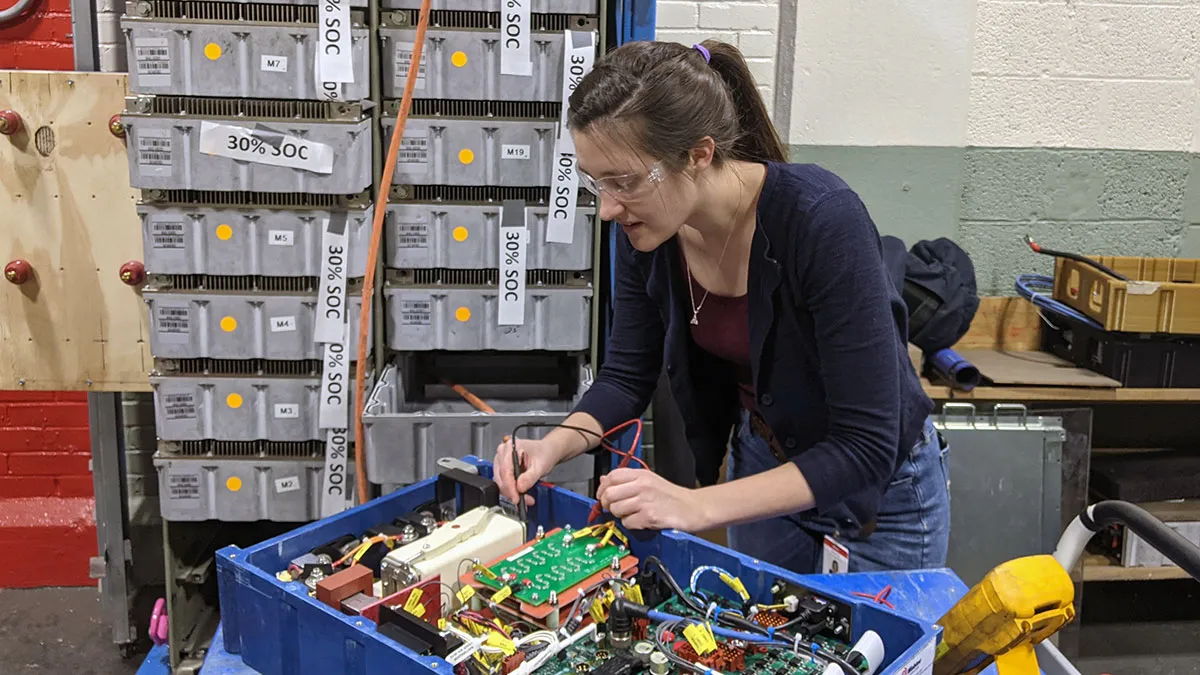I went to engineering school with a similar mindset that many 18-year-olds have. I liked math and science, so I might as well be an engineer. The 18-year-old me enjoyed chemistry, so I selected chemical engineering as my major and enrolled in the intro course. Two weeks into college, there was a career fair and the ever-so-inexperienced me went to it in my best clothes and pretended to be someone who knew what they wanted. Armed with the desire to work in biofuels to help make a better planet (because that’s what chemical engineers do), I talked to various prospective employers. However, I think it was very obvious that I had only been an engineer for two weeks and truly had a lot to learn.
Fast forward from freshman me navigating the career fair to the version that had discovered she didn’t want to be a chemical engineer. The new, mechanical me had the opportunity to interview with Wabtec. The recruiter and I bonded over the joys of lake effect snow and all the fun parts of Pittsburgh. As things turned out, I got the internship and spent the summer learning about locomotive systems through the lens of reliability. While I might have been looking at the locomotive world from a reliability point of view, the clearest piece to me was that there was so much to learn and explore. I returned the next summer and worked in a metallurgy lab while still trying to figure out what I wanted to do.
At the end of the second summer, we had the chance to interview again for a full-time position in the rotational program. I entered into the company’s Leadership, Expertise and Accelerated Development (LEAD) Program. Essentially, it was a chance to spend the first two years of my engineering career trying four different positions, while also receiving an immense amount of professional development training. Instead of being completely naïve about all the opportunities of engineering, working on locomotives showed me the possibilities were endless. At that point, a rotational program seemed like a perfect place to start.
In my first two rotations, I tried engine controls and engine components. They were awesome, but I didn’t feel like I had found my niche. It wasn’t until my third rotation in energy storage that I knew what I wanted to do. With that, I am working on one of the most exciting projects at the business. We are designing the battery for a 100-percent battery electric locomotive. I own packaging the controller electronics or brains of the battery, while still holding onto my freshman dream of making a greener planet.
This summer, we were giving a virtual tour of the battery assembly area to girls attending our Wabtec Girls STEM camp. A girl asked about what women worked on for this project. I was proud to reply that there were software developers, structural designers, controls engineers, and battery designers like me. It was truly an awesome moment for me to reflect on how little I knew about the opportunities in engineering when I was their age. Now, I get to stand in front of these young women and help them explore engineering long before they are a freshman who simply loved math and science.

